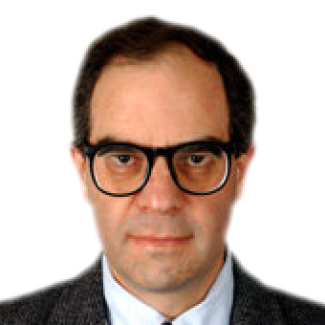It is not difficult to elucidate the problems facing the country; The difficult part is identifying the ideal solutions and building consensus for their implementation. The problems are largely old and known to everyone, but their causes, consequences and potential solutions are always controversial. Therefore, the old notion that the country is overdiagnosed and that the solutions are obvious is false, or at least absurd. If they were, we wouldn't be stuck like we are. Some of these problems are ancestral, others are products of the accelerated evolution of the world, but both demand solutions that Mexican politics has been unable to provide.
In his campaign for the presidency, candidate López Obrador outlined the ancestral problems in a comprehensive way: poverty, inequality, low growth and corruption. One can add as many questions as one wants, although it is obvious that this list summarizes the problems that are perceived as central to the development of the country, but these are consequences, not causal factors. That is, now that the campaigns begin, a discussion capable of producing a relevant and viable government program has to focus on the causes of the problems that have been identified in order to effectively influence them.
On the other hand, complicating the panorama, new problems are found or, at least, circumstances that alter the environment within which economic activity develops and societies interact. The globalization of economic activity - from which Mexico lives through exports and, recently, the so-called nearshoring - makes it impossible (and counterproductive) to adopt unilateral economic measures, as would have happened half a century ago. Factors such as organized crime - transnational activity - require attention at the internal level, but no nation can defeat them on its own. The ubiquity of information and the universalization of its access have altered all the vectors that characterized political life in the past.
The point is that ancestral problems require solutions that must contemplate and be part of a conception that includes the realities that characterize today's world. The attempt to abstract from the world as advocated by the government that is about to conclude has proven to be fallacious and detrimental to development and, paradoxically, harmful to the poorest population, which is the one that suffers most intensely from the evils that the president identified in his campaign.
The surprising thing about the situation that Mexico is experiencing, similar to that of other nations, is that it is not difficult to figure out what needs to be done. The difficult thing, whatever the cause, has been moving towards the implementation of those solutions. The answers are often obvious, although at first glance they may not seem plausible. Ronald Reagan outlined the dilemma presciently: “We have been told for many years that there are no simple answers to complex problems that are beyond our ability to understand. The truth, however, is that there are simple answers; The problem is that these are not simple.”
The tensions that characterize the country are not a mere coincidence. The sum of political imbalances - many of these products of the growing complexity that characterizes the world and that is manifested in Ukraine, artificial intelligence, cyber attacks and the possibility of the return of Trump and disruptive politicians, especially in the context of an extreme Institutional weakness, especially in the form of the absence of effective counterweights, has produced a political and now electoral panorama that has paralyzed the country. This, paradoxically, also constitutes a great opportunity because even the president's most devout believers know that progress is impossible in the absence of agreements on at least the most fundamental factors of human coexistence.
The management of the government budget throughout the six-year term has been particularly harmful to the growth of the economy. By diverting resources that would normally have been dedicated to education and health, as well as public investment, the government preferred to nurture transfers to its favorite clienteles. As comedian Andy Borowitz says, “It would be great to spend billions on schools and roads, but right now the money is desperately needed for political campaigns.”
Campaign periods make it impossible to build agreements about and for the future, but they are also favorable times to explore options and possibilities. The candidates' proposals may or may not be viable, but they force us to think differently about the prevailing status quo. In this last sense, they open the door for society to propose solutions and alternative ways to existing ones to approach problems, establishing potential common anchors for future solutions.
One of the most frequent errors in political diagnoses is to attribute to leadership responsibilities for what are in fact structural problems, but that does not exempt them from the obligation to work - or propose in the electoral period - alternatives that allow overcoming the problems. structural complexities.










